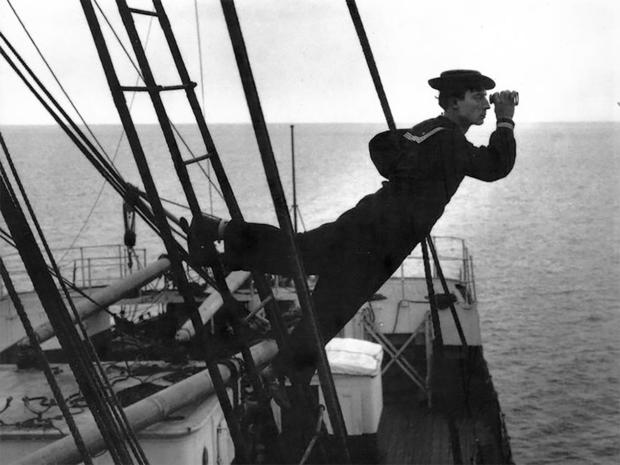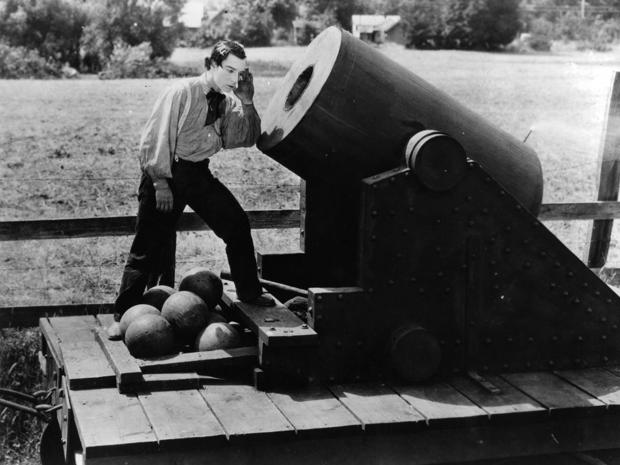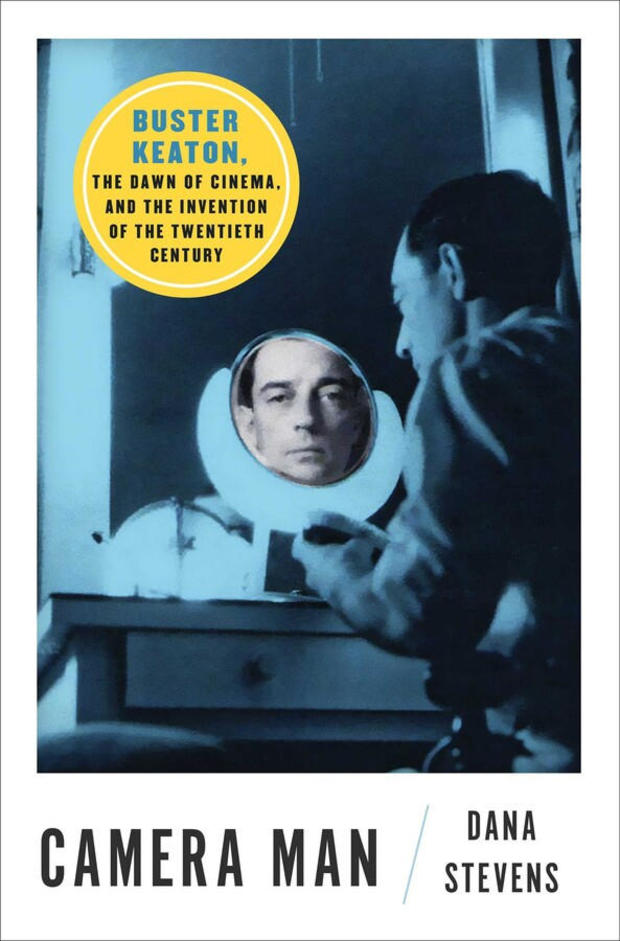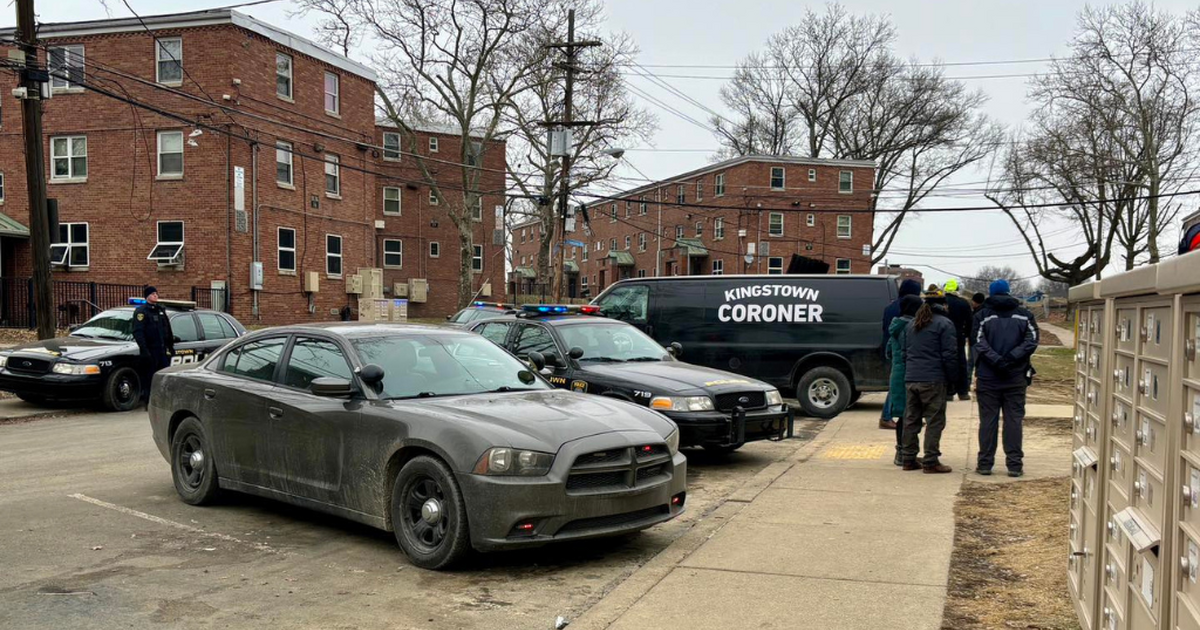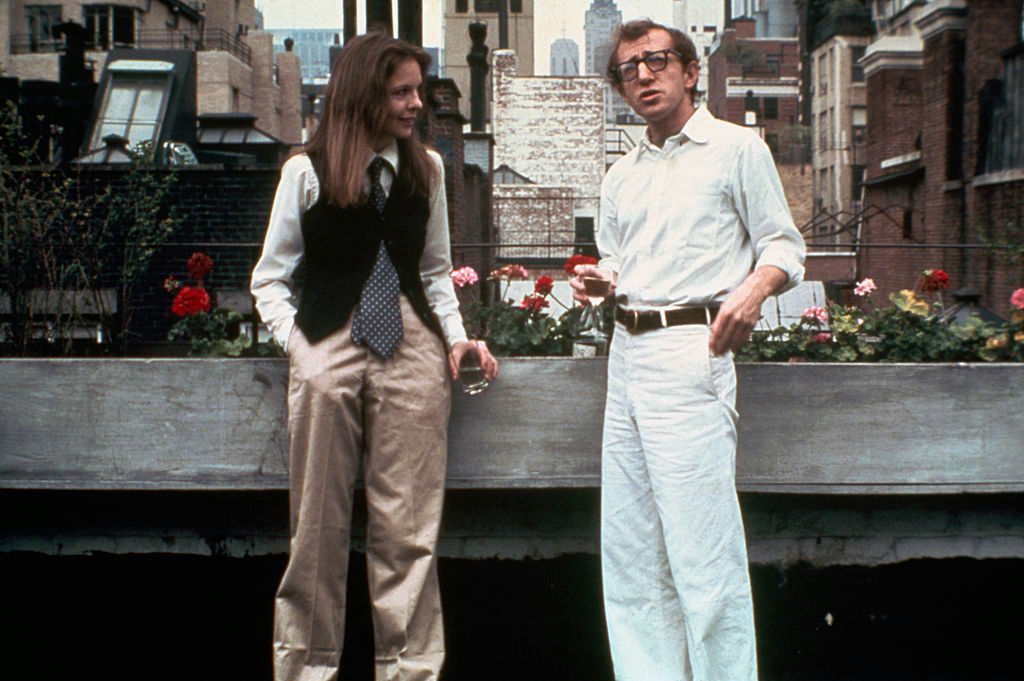Buster Keaton, the "Great Stone Face"
Now arriving back on the scene, it's Buster Keaton – silent film star, comedian, acrobat, director, special-effects innovator, and now the subject of two new biographies and an upcoming movie.
"He was way ahead of his time, even as a sort of film pioneer," said Bill Irwin, a stage and screen actor (and a famous clown himself).
Correspondent David Pogue asked, "What influence did Buster Keaton have on you?"
"A great storyteller," Irwin replied. "I just wanna be able to speak with the body the way he can. I remember that from being a young, young clown."
"You got pretty good at it!"
"I kept trying!" he laughed.
Keaton began performing at age four, in his parents' vaudeville act. "It was about a mischievous boy taunting his father on stage," said Dana Stevens, the movie critic for Slate, and author of a new Keaton biography, "Camera Man" (published by Simon & Schuster, a division of Paramount).
"And the father then grabbing the son, often by a suitcase handle that his mother sewed onto the back of his costumes, and just kick him around the stage, throw him into the scenery, throw him into the backdrop.
"He never got to go to school, he never had a steady home. But he always talked about his childhood as something he was very happy to have had," Stevens said.
Keaton's Golden Age began in 1920, when he began writing, directing and starring in what are now considered some of the best movies ever made.
His nickname was "The Great Stone Face." He never smiled on camera. As Keaton said in a 1960 interview, "Well, you see, I learned that from the stage. If I laughed at what I did, the audience didn't. So, by the time I went into pictures, not smiling was mechanical with me."
Bill Irwin finds Keaton's genius in this classic gag, from "Steamboat Bill Jr":
In 1927, at the peak of his fame and success, Keaton made what he later called "the worst mistake of my life": He joined the moviemaking machine known as MGM Studios. His improvisational style, his creative freedom, and his independent film career were over.
Stevens said, "It really, I think, just broke him, as a performer, and as a person. His marriage was also falling apart separately from that. He was starting to drink too much."
By 1933, alcoholic and miserable, he had lost his marriage, his home, and even his MGM job, But …
"I think that it's often focused on a lot that he had this sort of giant decline," said Keaton Talmadge, a professional voice actor – and Buster Keaton's great-granddaughter. "The irony isn't lost on me. My great-grandfather made a living being silent, and I make a living talking all the time!"
She points out that Buster's life had a third act: "People forget that there was a definite uphill after that, where he contributed to some great comedic television, he got to do commercials and just be on set, [and] where he was in a very happy, wonderful marriage."
A 1965 documentary, "Buster Keaton Rides Again," captured some rare footage of Keaton off-camera – smiling, in fact.
Keaton died at age 70 of lung cancer. But his film work never really left. You can see Keaton stunts and gags echoed in "Mission: Impossible 6," "Inception," and "You Only Live Twice. " And, of course, Keaton's house-façade gag is one of the most imitated shots in comedy, from Jackie Chan to "The Simpsons."
According to Bill Irwin, the theme of Keaton's life, its ups and its downs, might be resilience: "You just hit the ground and get back up again," he said. "Keaton did that all his life. He hit the floor, hit the ground, got up again."
For more info:
- Bill Irwin
- Dana Stevens, Slate
- "Camera Man: Buster Keaton, the Dawn of Cinema, and the Invention of the Twentieth Century" by Dana Stevens (Atria Books), in Hardcover, eBook and Audio Formats, available via Amazon and Indiebound
- "Buster Keaton: A Filmmaker's Life" by James Curtis (Knopf), in Hardcover, eBook and Audio Formats, available via Amazon and Indiebound
- Keaton Talmadge
- Kaufman Astoria Studios
- "Buster Keaton: Cut to the Chase" by Marion Meade (Da Capo Press), in Trade Paperback and eBook formats, available via Amazon and Indiebound
- The International Buster Keaton Society
- Buster Keaton (Turner Classic Movies)
Story produced by Gabriel Falcon. Editor: Steven Tyler.
